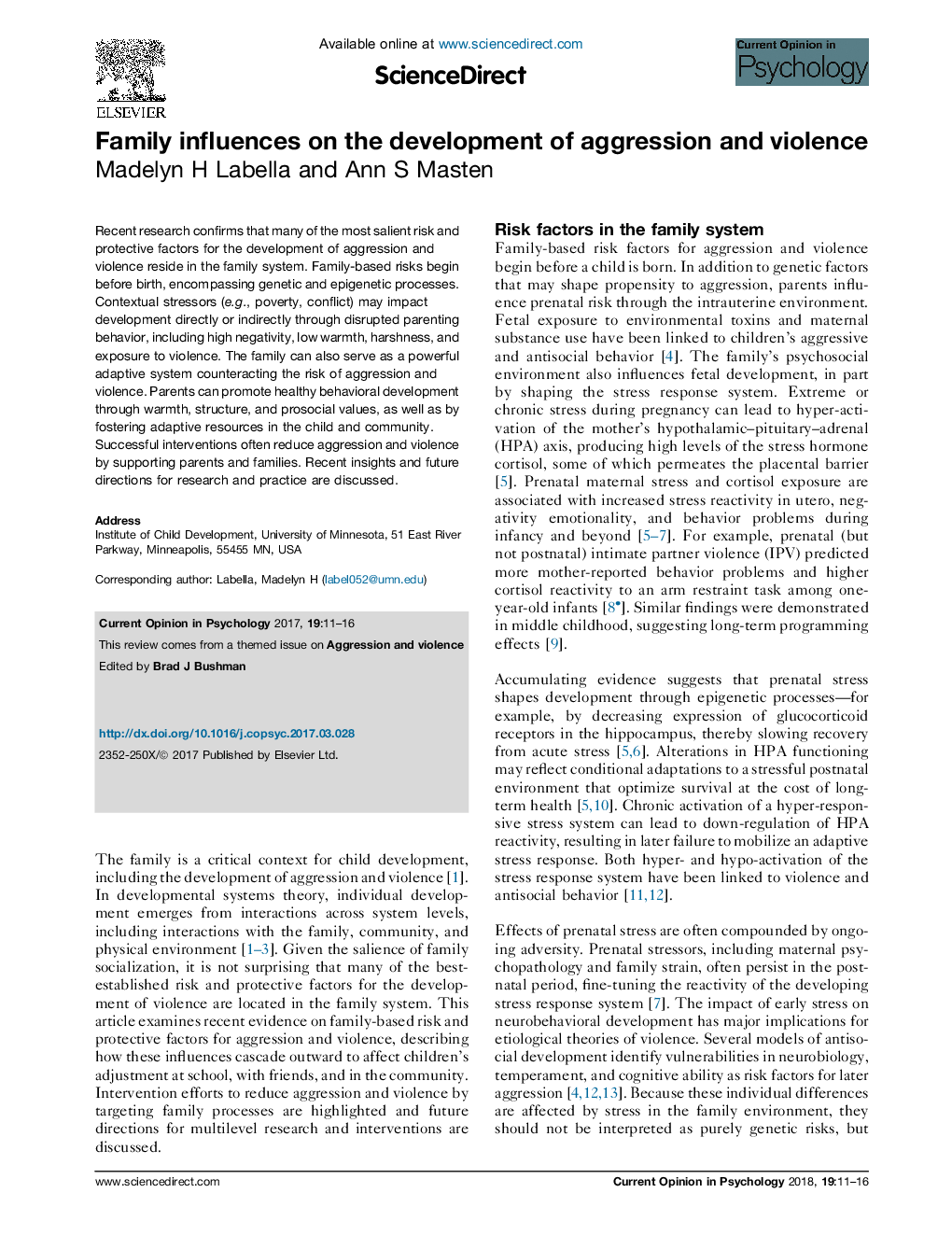| Article ID | Journal | Published Year | Pages | File Type |
|---|---|---|---|---|
| 5033449 | Current Opinion in Psychology | 2018 | 6 Pages |
â¢Families play powerful direct and indirect roles in the development of violence.â¢Aggression is linked to genetic risk, stress, harsh parenting, and family violence.â¢Families counteract risk through warmth, structure, and other adaptive processes.â¢Family processes that mitigate risk for violence are amenable to intervention.â¢More research is needed on strategic timing and tailoring of interventions.
Recent research confirms that many of the most salient risk and protective factors for the development of aggression and violence reside in the family system. Family-based risks begin before birth, encompassing genetic and epigenetic processes. Contextual stressors (e.g., poverty, conflict) may impact development directly or indirectly through disrupted parenting behavior, including high negativity, low warmth, harshness, and exposure to violence. The family can also serve as a powerful adaptive system counteracting the risk of aggression and violence. Parents can promote healthy behavioral development through warmth, structure, and prosocial values, as well as by fostering adaptive resources in the child and community. Successful interventions often reduce aggression and violence by supporting parents and families. Recent insights and future directions for research and practice are discussed.
